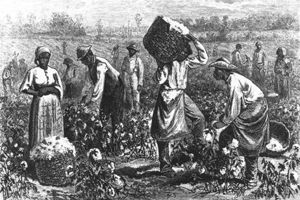 Although little battlefield action takes place this month, public emotions are running high North and South while military leaders acquire equipment and plot strategy.
Although little battlefield action takes place this month, public emotions are running high North and South while military leaders acquire equipment and plot strategy.
The Connecticut Hartford Daily Courant runs a synopsis of a story from New York’s Auburn Advertiser concerning an incident in Georgia:
The Auburn Advertiser states that a man named Dunning, who lives at Atlanta, Ga., and is a brother of H. S. Dunning, of Cayuga County, was recently whipped to two hundred lashes for expressing the hope that the Union would be sustained. This information was received from a gentleman in Georgia, formerly a prominent member of the Baptist Church of Auburn.
While northern newspapers portray the South as disallowing dissent, southern newspapers report that the North is afraid England may break neutrality to side with the South, because “cotton [England] must have.” African slavery is the economic linchpin of the South, and cotton – the fruit of slavery – is the key to southern victory, southern politicians and leading men are convinced.
Military leaders North and South realize control of coastal waterways will play a pivotal role in the war. The Union has the upper hand over the fledgling Confederacy in this matter, and there is little time for the South to waste if she wants to protect her exports to England. Currently in England, Confederate Cmdr. James D. Bulloch seeks suitable warships to purchase to build up the southern navy. Bulloch reports to Confederate Secretary of the Navy Stephen R. Mallory that neither England’s available wooden ships or ironclads are suitable for war purposes. Thus Bulloch places orders for two sturdier ironclads to be built for the Confederate Navy.
Sources: Hartford Daily Courant (link); Richmond Times Dispatch (link); Bulloch in England (link); slaves picking cotton (link)


